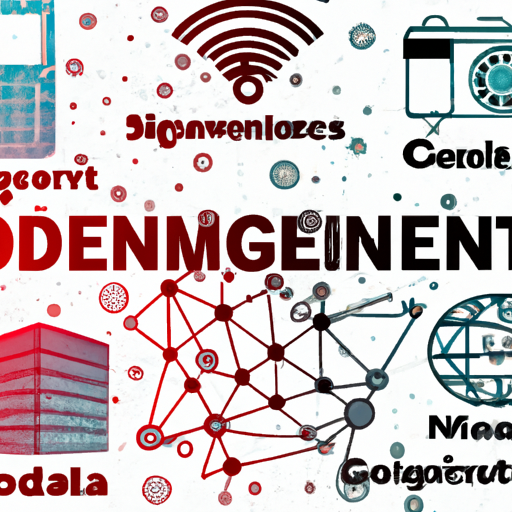-
Table of Contents
“Exploring the Impact of Technology on Society: Uncovering the Ethical and Societal Implications of Emerging Trends.”
Introduction
The emergence of new technologies and trends has had a profound impact on our society. From the introduction of the internet to the development of artificial intelligence, these advances have changed the way we live, work, and interact with each other. However, with these changes come ethical and societal implications that must be considered. These implications can range from privacy concerns to the potential for misuse of technology. It is important to understand the ethical and societal implications of emerging technologies and trends in order to ensure that they are used responsibly and for the benefit of society.
Exploring the Impact of Autonomous Vehicles on Society
Autonomous vehicles, also known as self-driving cars, are rapidly becoming a reality. As technology advances, these vehicles are becoming increasingly sophisticated and are expected to have a major impact on society. This article will explore the potential implications of autonomous vehicles on society.
One of the most significant impacts of autonomous vehicles is likely to be on transportation. Autonomous vehicles are expected to reduce the number of accidents on the road, as they are programmed to follow the rules of the road and can detect potential hazards more quickly than human drivers. This could lead to a decrease in traffic fatalities and injuries, as well as a reduction in traffic congestion. Additionally, autonomous vehicles could reduce the need for parking spaces, as they could drop off passengers and then drive away to park in a designated area.
Autonomous vehicles could also have an impact on the economy. The introduction of autonomous vehicles could lead to job losses in the transportation industry, as drivers are replaced by machines. However, it could also create new jobs in the technology sector, as more people are needed to develop and maintain the vehicles. Additionally, autonomous vehicles could reduce the cost of transportation, as they are expected to be more fuel-efficient than traditional vehicles.
Finally, autonomous vehicles could have an impact on the environment. Autonomous vehicles are expected to be more fuel-efficient than traditional vehicles, which could lead to a reduction in emissions. Additionally, autonomous vehicles could reduce the need for road construction, as they are expected to be able to navigate roads more efficiently than human drivers.
In conclusion, autonomous vehicles are expected to have a major impact on society. They could reduce the number of accidents on the road, create new jobs in the technology sector, reduce the cost of transportation, and reduce emissions. As technology advances, it is important to consider the potential implications of autonomous vehicles on society.
Examining the Ethical Implications of Artificial Intelligence
The development of artificial intelligence (AI) has been a major breakthrough in the field of technology. AI has the potential to revolutionize many aspects of our lives, from healthcare to transportation. However, the ethical implications of AI must be considered before its widespread adoption.
AI systems are designed to make decisions based on data and algorithms, and this can lead to ethical dilemmas. For example, AI-driven decision-making systems may be biased against certain groups of people, such as those from minority backgrounds. This could lead to unfair outcomes, such as unequal access to services or resources. Additionally, AI systems may be used to automate processes that could lead to job losses, which could have a negative impact on people’s livelihoods.
Another ethical concern is the potential for AI systems to be used for surveillance or to manipulate people’s behavior. AI-driven systems can collect vast amounts of data about people’s activities and preferences, which could be used to target them with specific messages or products. This could lead to a loss of privacy and autonomy, as well as the potential for manipulation.
Finally, AI systems are vulnerable to hacking and other malicious activities. This could lead to the misuse of data or the disruption of services, which could have serious consequences.
It is clear that the ethical implications of AI must be taken into account when developing and deploying AI systems. Governments and organizations should ensure that AI systems are designed with ethical considerations in mind, and that they are subject to appropriate regulation and oversight. Additionally, organizations should ensure that they have adequate security measures in place to protect against malicious activities. By taking these steps, we can ensure that AI is used responsibly and ethically.
Assessing the Social Impact of Augmented Reality
Augmented Reality (AR) is a technology that has the potential to revolutionize the way we interact with the world around us. It is a technology that overlays digital information onto the physical world, allowing users to interact with their environment in new and exciting ways. As such, it has the potential to have a significant social impact.
The most obvious social impact of AR is the way it can enhance the user experience. By overlaying digital information onto the physical world, AR can provide users with a more immersive and engaging experience. For example, AR can be used to provide users with additional information about their environment, such as the location of nearby restaurants or the history of a particular building. This can make exploring a new area more enjoyable and informative.
AR can also be used to facilitate social interaction. By allowing users to share digital content with each other, AR can create a more connected and collaborative environment. For example, AR can be used to create shared experiences, such as virtual scavenger hunts or augmented reality games. This can help to bring people together and foster a sense of community.
Finally, AR can be used to create new opportunities for learning and education. By overlaying digital information onto the physical world, AR can provide users with a more interactive and engaging learning experience. For example, AR can be used to provide students with additional information about a particular topic or to create virtual simulations of real-world scenarios. This can help to make learning more engaging and effective.
In conclusion, Augmented Reality has the potential to have a significant social impact. By enhancing the user experience, facilitating social interaction, and creating new opportunities for learning and education, AR can help to create a more connected and engaging world.
Analyzing the Potential Benefits and Risks of Blockchain Technology
Blockchain technology has been gaining traction in recent years, as it offers a secure and transparent way to store and transfer data. It is a distributed ledger system that records and stores data in a secure and immutable manner. This technology has the potential to revolutionize many industries, from finance to healthcare. However, it is important to consider the potential benefits and risks associated with blockchain technology before investing in it.
The potential benefits of blockchain technology are numerous. First, it is highly secure, as it uses cryptography to protect data from unauthorized access. This makes it ideal for storing sensitive information, such as financial records or medical records. Additionally, blockchain technology is decentralized, meaning that it is not controlled by any single entity. This makes it resistant to manipulation and censorship, as the data is stored on multiple computers. Furthermore, blockchain technology is transparent, as all transactions are recorded and stored on the ledger. This makes it easier to track and audit transactions, which can help to reduce fraud and corruption.
However, there are also some potential risks associated with blockchain technology. First, it is still relatively new, and there are still some technical issues that need to be addressed. Additionally, the technology is still largely unregulated, which could lead to potential security risks. Furthermore, the technology is still relatively expensive, as it requires a large amount of computing power to operate. Finally, there is the potential for malicious actors to exploit the technology for their own gain, such as by creating fake transactions or manipulating the data stored on the ledger.
In conclusion, blockchain technology has the potential to revolutionize many industries, but it is important to consider the potential benefits and risks associated with it before investing in it. While it offers a secure and transparent way to store and transfer data, there are still some technical and security issues that need to be addressed. Additionally, the technology is still largely unregulated, which could lead to potential security risks. Therefore, it is important to do your research and understand the potential risks before investing in blockchain technology.
Conclusion
The ethical and societal implications of emerging technologies and trends are far-reaching and complex. As technology continues to evolve, it is important to consider the potential implications of these changes on society and the ethical considerations that must be taken into account. It is essential to ensure that emerging technologies are used responsibly and ethically, and that their potential impacts on society are carefully considered. By doing so, we can ensure that the benefits of these technologies are maximized while minimizing any potential risks.




